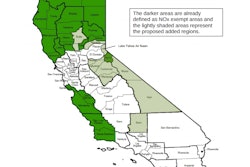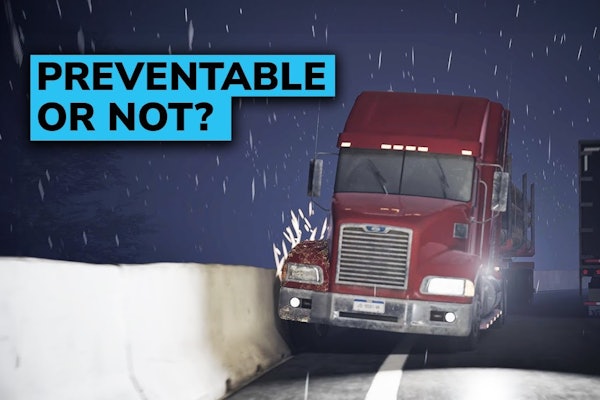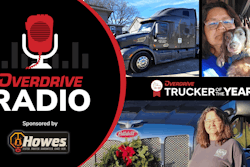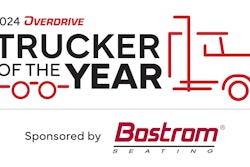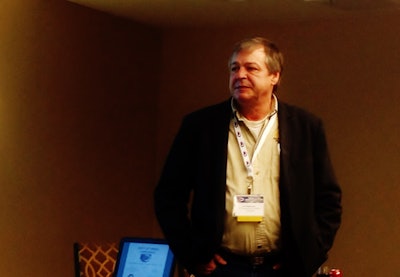
CARB’s got EPA blessing, of course, to enforce its powertrain, idling, and box-trailer/tire requirements today, in the last case a very recently acquired go-ahead, as we’ve reported. CCTA’s appeal has been years in the waiting — lord only knows how long OOIDA’s might take. Meantime, as Rajkovaz says in the podcast, the rules “go hard-fast.” Take a listen:
As at last year’s NASTC meeting, joining Rajkovacz in the CARB-issues-devoted session was Sean Edgar of the CleanFleets CARB compliance assistance organization, who updated attendees on deadlines coming into play at yearend.
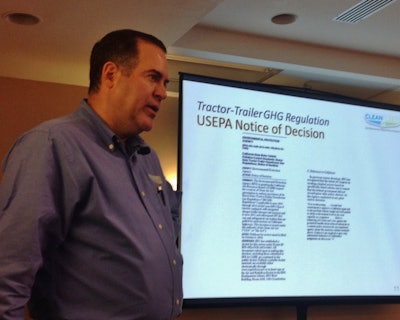
Reefer engines in operation in California newly covered by the TRU rule at the end of the year will include 2007 model year units, which must meet the Ultra-Low-Emission TRU In-Use Performance Standard.
For the primary truck powertrain, pre-1994 on-highway diesel engines will effectively not be authorized to operate on California roadways as of January 1. The owners of those trucks are not able to apply for the economic hardship extension, either. Only owners of 1996 or newer powertrains can do so, an option through the end of the December if the owner’s reported to CARB as a part of the so-called “Good Faith Efforts” of late last year, among other requirements
If you’re still unsure of where your engine falls in the regs, use our compliance schedule tool here.
That hardship extension stems from the loan-denial proposal CARB was considering during the round of talks over potential new compliance flexibility options early this year and late last year. As I’ve written before (when the extension was proposed and eventually adopted), as Rajkovacz sees it the hoops applicants have to jump through in order to get it are particularly onerous.
Don’t believe it? Rajkovacz reports that only a handful of folks have applied for it to date. The ExemptMyTruck.com service offers filing/handling assistance for the extension — for $995 per truck, which probably tells you a little about how much work is involved. You can run through the reporting and other requirements of the extension here.
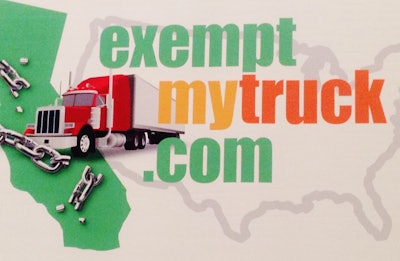
There are people saying, “Don’t worry, they’re not enforcing it.” A fool is believing that. They are enforcing it, and depending on the degree of the violation, you can get in serious trouble. …
 If you’re using a mobile device, tap the image to call and weigh in on how you have dealt (or not) with the CARB regs. Have you seen CARB enforcement firsthand? We’ll utilize your input in a future “audio mailbag” podcast. If you’re on a desktop, call 530-408-6423. Make sure to tell us your name and state of residence.
If you’re using a mobile device, tap the image to call and weigh in on how you have dealt (or not) with the CARB regs. Have you seen CARB enforcement firsthand? We’ll utilize your input in a future “audio mailbag” podcast. If you’re on a desktop, call 530-408-6423. Make sure to tell us your name and state of residence.If you’ve bypassed the emissions system with an ECM mod, for instance, he adds, “Go anywhere but the state of California.”
The form that trouble takes? Fines, pure and simple, not to mention the cost to make an equipment change and/or lost freight with downtime. With the trailer/tires regs now officially in the enforcement basket, look for the dollars numbers CARB collects to continue to rise.
[youtube Gi5uRaD-WdA nolink]


